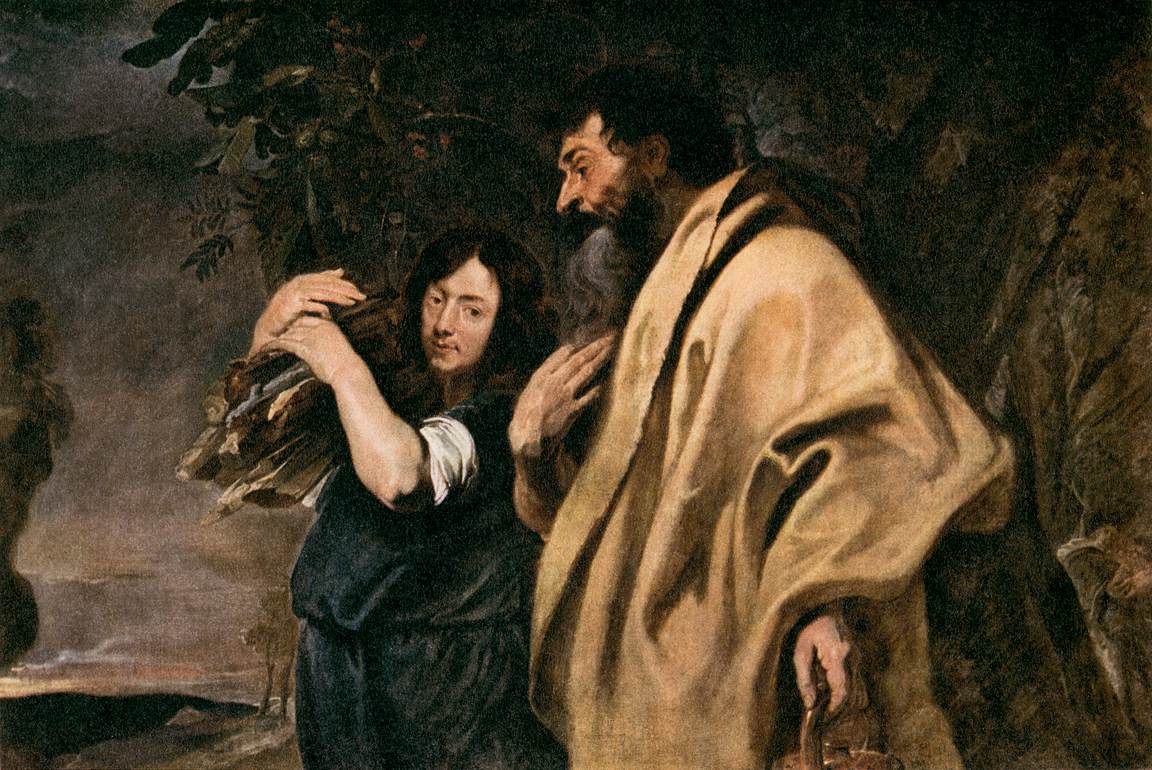Reproach has broken my heart and I am so sick. And I looked for sympathy, but there was none, And for comforters, but I found none. They also gave me gall for my food And for my thirst they gave me vinegar to drink. (Psalm 69:20-21, NASB)
Psalm 69 is another written by King David, a portion of which is recognized as a prophecy of the suffering that Jesus Christ would endure at the end of His life on this earth. Its title is “A Cry of Distress and Imprecation on Adversaries.” There were many times that David felt anguish as his enemies pursued him, and many times he asked God for help in defeating and punishing them. The parallels with what Jesus felt at the end of His life are interesting.
First, there’s the reproach that “has broken my heart and I am so sick.” Jesus was abandoned by His friends, the disciples. Worse, His Father turned His back on His Son during the hours of torture and crucifixion. Jesus also suffered humiliation and mocking from people as He hung on the cross. Physically, He became so sick in the Garden of Gethsemane in anticipation of what was about to happen, He began to sweat drops of blood.
Jesus, too, would look for sympathy and comforters, and find none. He took several of the disciples along to the Garden. He asked them to stand watch while He prayed. They fell asleep. Not once, but three times. When the crowd came with swords and clubs to arrest Jesus, His friends scattered. Simon Peter later denied knowing Him three times.
 Psalm 69:20 image. Found at Bible Hub, https://biblepic.com/41/psalms_69-20.htm
Psalm 69:20 image. Found at Bible Hub, https://biblepic.com/41/psalms_69-20.htm
Part of Matthew’s account of the crucifixion includes the fulfillment of the prediction “they gave me gall for my food.” Gall is a kind of poison. From Matthew: “And when they came to a place called Golgotha, which means Place of a Skull, they gave Him wine to drink mixed with gall; and after tasting it, He was unwilling to drink.” (Matthew 27:33-34)
Matthew also tells of the completion of the prophecy “and for my thirst they gave me vinegar to drink.” Again, from Matthew’s narrative, as Jesus was about to die: “And some of those who were standing there, when they heard it, began saying, ‘This man is calling for Elijah.’ Immediately one of them ran, and taking a sponge, he filled it with sour wine and put it on a reed, and gave Him a drink. But the rest of them said, ‘Let us see whether Elijah will come to save Him.’ And Jesus cried out again with a loud voice, and yielded up His spirit.” (Matthew 27:47-50)
I wonder if what Jesus went through and experienced is a picture of hell? Hell is described in the Bible as a place of agony. It’s a place where if one is sent, he will be separated from God for eternity. King David uses the term “reproach.” He says there would be no sympathy, no comforters. Those sound like good descriptions of hell. Jesus went through all that, and He was separated from the Father while He endured it. Jesus went through hell, which is what we deserve. He took the punishment we deserve so we don’t have to. To escape God’s wrath, we need to accept Jesus’ sacrifice, and make Him the Lord of our lives. Accept God’s most precious gift of Jesus. That’s what Lent and Resurrection Sunday are all about.

 The Sword that Pierced Mary’s Soul. Found at
The Sword that Pierced Mary’s Soul. Found at 

 Image from Kyiv. Victor, Daniel. “How do You Pronounce ‘Kyiv’?” From The New York Times, 25 January 2022. Found at
Image from Kyiv. Victor, Daniel. “How do You Pronounce ‘Kyiv’?” From The New York Times, 25 January 2022. Found at 

 Philippians 4:4 image. Found at DailyVerses.net,
Philippians 4:4 image. Found at DailyVerses.net, 
